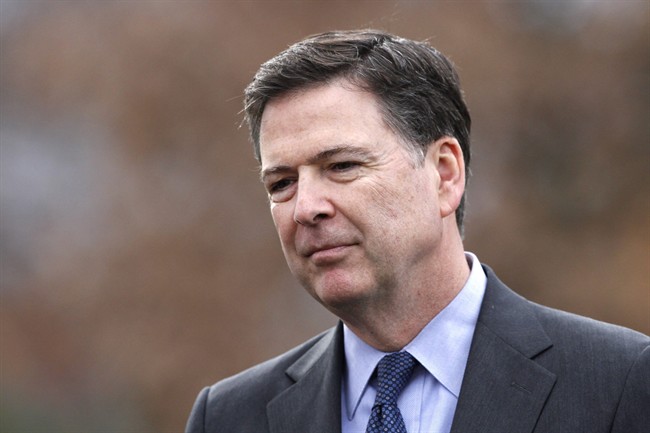WASHINGTON – The policy issues raised in the Justice Department’s dispute with Apple Inc. over a locked iPhone represent the “hardest question I’ve seen in government,” FBI Director James Comey said Thursday.

“It’s really about who do we want to be as a country and how do we want to govern ourselves,” Comey told the House Intelligence Committee.
A week ago, a federal magistrate in California directed Apple to help the FBI hack into a phone used by one of the assailants in the December mass shooting in San Bernardino, California.
Apple was expected to file a formal objection on Friday.
READ MORE: Complying with the FBI would be ‘bad for America’ says Apple CEO
Comey reaffirmed what he posted in a blog Sunday night: that the Justice Department was not trying to set a precedent by going to court to obtain access to the phone.
Instead, he said, “It’s about trying to be competent in trying to investigate something that is an active investigation.”
Apple’s chief executive, Tim Cook, told ABC News that it would be “bad for America” if his company complied with the FBI’s demand and that he was prepared to take the fight to the Supreme Court.
Comey said Apple had been “very co-operative” in the months leading up to the court fight and that there have been “plenty” of negotiations between the two sides. But at some point, Apple reached a point where it was not willing to do what FBI was asking.
READ MORE: Apple wants Congress, not courts, to make final decision on iPhone hacking
Comey acknowledged that last week’s order could help guide other courts considering the same issue in the future. But he rejected Apple’s assertion that the order could create a slippery slope affecting millions of other iPhone users.
Comey insisted that the code the FBI was asking Apple to create would work only on that one phone and would be retained by Apple.
Apple has argued that doing so would make other iPhones more susceptible to hacking by authorities or criminals in the future.
Apple vs. FBI: What happens next?
March 3: This is the deadline for any supporters or opponents of the case to file “friend of the court” briefs, stating their stance on the matter. A number of leading tech companies – including Microsoft, Google, Facebook and Twitter – have vowed to file a brief in support of Apple.
March 10: The government will have a chance to respond to Apple’s order asking the federal magistrate to reverse her order.
March 15: Once the government has issued its final response, Apple will have a chance to reply by this date.
March 22: Lawyers representing both Apple and the FBI will appear in a district court in California. Each side will argue their case to the magistrate judge, who is expected to hand down her ruling shortly after. The losing party will have the option to appeal the ruling.



Comments